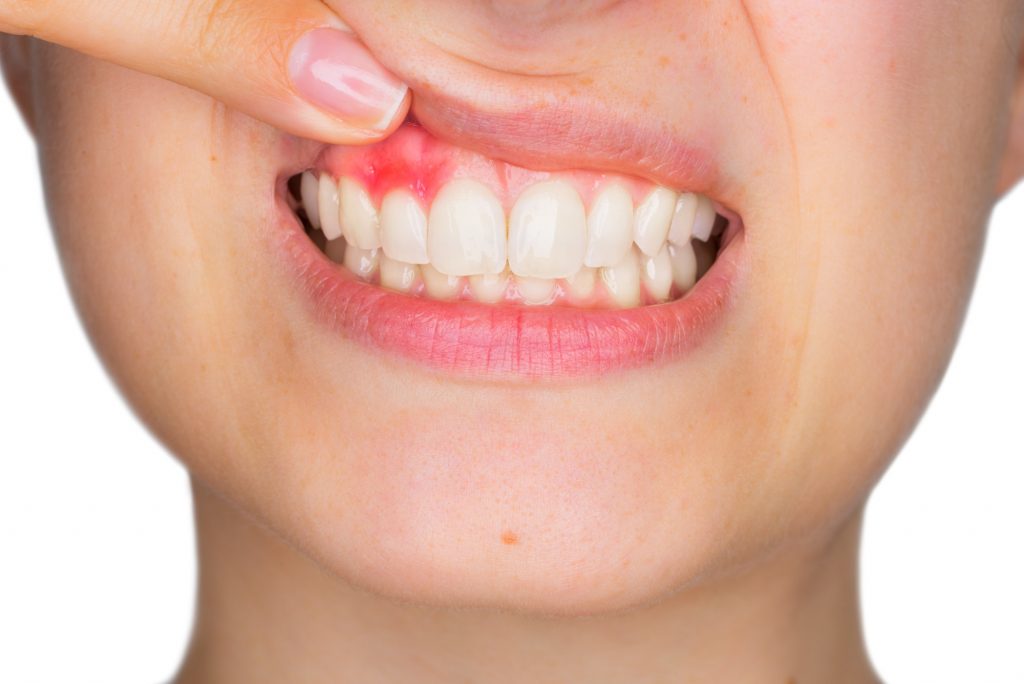How Do You Get Gum Disease? The 7 Most Common Causes of Gum Disease
An apple a day keeps the doctor away. If it’s true, and you like apples, it’s a comforting thought. But what about the dentist?
Are you one of the 8.52% of people age 20-64 who suffer from gum disease despite your mother using hyperbole as a threat? Well, she didn’t say anything about the dentist and apples, did she?
Now you’re wondering if you’ve eaten apples all your life and that didn’t work, how do you get gum disease anyway?
We’ve solved the mystery and offer you information about 7 common causes of gum disease.
Hint: Your mother wasn’t too far off with the apples but let’s start with the dentist.
1. Missed Dental Appointments
Gum disease, like high blood pressure, is often considered a silent health issue. It’s silent because, in the early stages, gum disease doesn’t hurt or have any noticeable symptoms.
A person may not suspect a problem until they see a little pink in the sink when brushing their teeth.
Bleeding gums are often the only sign of early gum disease. Once the disease advances, gums deteriorate. At that point, bleeding may stop but other symptoms usually show up.
Regular visits with your dentist are critical to preventing and treating gum disease. Routine dental exams and cleanings are your best defense against gum disease.
When you have your teeth cleaned, you fight plaque and tartar buildup—one of the major causes of the disease.
2. The Plaque Attack
Stop what you’re doing right now and run your tongue over your teeth.
Depending on what time of day you’re reading this, you may notice an unpleasant film on your teeth and tongue. It’s called plaque!
Plaque, left on its own, causes yellow teeth and bad breath. It also leads to gum disease.
What causes plaque?
First, your mouth is naturally full of bacteria. When you eat, the bacteria celebrate. When you chew your food, it breaks down into simple sugars—the main diet of bacteria.
Plaque is bacteria’s waste product. Lovely, isn’t it?
When you ignore plaque by not brushing your teeth after eating, it turns into tartar. Once tartar forms, you’re out of luck. Only your dentist can remove tartar.
Now you know why missing dental appointments isn’t a good idea.
3. Crooked Teeth
Those routine dental appointments do more than keep your teeth clean. They give your dentist a chance to detect and correct another common cause of gum disease. Crooked teeth.
You might be thinking, “how do you get gum disease from crooked teeth?” Stick with us and we’ll show you. Okay, we won’t really show you anyone’s crooked teeth, but we’ll share why your dentist doesn’t like them (the teeth, not the person).
To function properly, your gums must fit securely around your teeth. Crooked teeth create nooks and crannies where bacteria flourish. We already know bacteria causes plaque.
Brushing and flossing around crooked teeth isn’t always successful. You can easily miss those areas where plaque develops. By the time you see your dentist, you may already have gingivitis. also known as early gum disease.
An unhealthy diet is another contributor to gum disease, as you’ll see next.
4. You Are What You Eat
If you associate a bad diet with gum problems, you’re on the right track. Most of us know a diet high in sugary foods and drinks can set us up for tooth decay and other dental problems.
What many people don’t realize is how critical certain vitamins and minerals are for healthy teeth and gums.
If a person lives on processed junk foods high in sugar and refined grains, they miss out on important nutrients. Also, people who follow this type of diet often drink soda and high-sugar juices over water. Water is another key to good dental health.
Snacking on oranges, blueberries, apples, oatmeal, and beans might help prevent gum disease. Of course, those are only a few of the healthy eats you should consume but you get the idea, right?
Up to now, we haven’t mentioned treatment for gum disease. Read more here about treatment because there is hope.
Of course, there’s not as much hope if you use one of your dentist’s biggest bugaboos, tobacco.
5. Tobacco Is Your Enemy
Ever looked inside a smoker’s mouth? It’s usually not a pleasant sight because most smokers have some serious staining on their teeth. If they’ve smoked heavily for years, they may also have several seriously decayed, and even missing teeth.
While tar in tobacco wreaks havoc on the appearance of your teeth, the problem goes even deeper.
Smoking weakens the immune system. Periodontitis is a gum infection. People with weakened immune systems have a hard time battling infections.
If you smoke or chew, treatment for gum disease may not work as well for you.
6. Blame Your Hormones
Are you a woman who’s tired of hearing about hormones? Hormones take the blame for those extra pounds, bad moods, and low libido. They can also create dental problems.
High levels of the female hormones, estrogen, and progesterone, may mean you’re at risk for gum disease.
These two hormones create more blood flow to your gums. When you have more blood flowing to the gum area, you might notice inflammation. Inflammation in gums causes swollen and bleeding gums.
The problem isn’t so much the hormones and resulting inflammation. It’s the lack of treatment. If you ignore the swelling and bleeding, you can develop the more serious issue of gum disease.
Chalk one more up to those horrible hormones. But don’t blame hormones for all your dental woes because your genes may play a part too.
7. How Do You Get Gum Disease from Your Family Tree?
You inherit many things from your parents. Eye color, body type, and temperament, to name a few. As it turns out, if you develop gum disease, you might be able to blame your parents.
Recent studies revealed master genes researchers believe may be responsible for the development of gum disease. One specific type of gum disease called aggressive periodontitis occurs in families. People can trace it back several generations.
So, blame your family tree if you have gum disease, but genes don’t mean you can’t prevent the problem in the first place.
Ready for Better Health?
Whether it’s lack of dental care, misaligned teeth, poor diet, smoking, or your parents, you can take control over your dental health.
We’ve identified 7 common causes of gum disease. If none of these apply to you, you’re likely still asking the question, how do you get gum disease? Your dental team has the answer, so make an appointment.
For more articles, especially about how you can use nutrition to improve both dental and overall physical health, check out our archives. And don’t forget to schedule time in the dentist’s chair!




